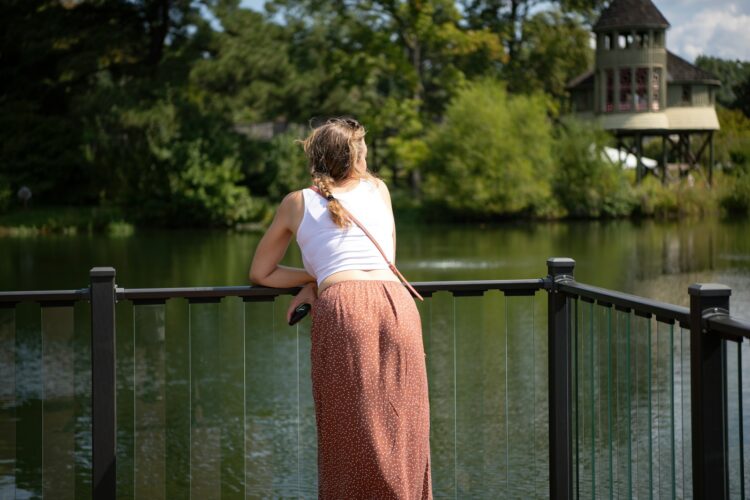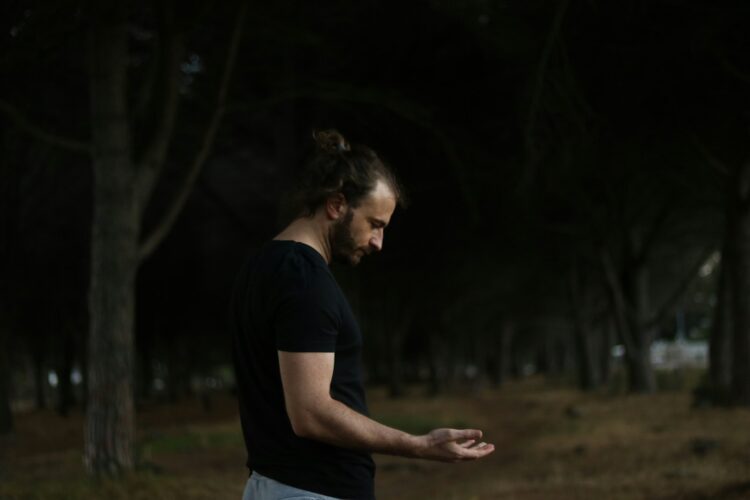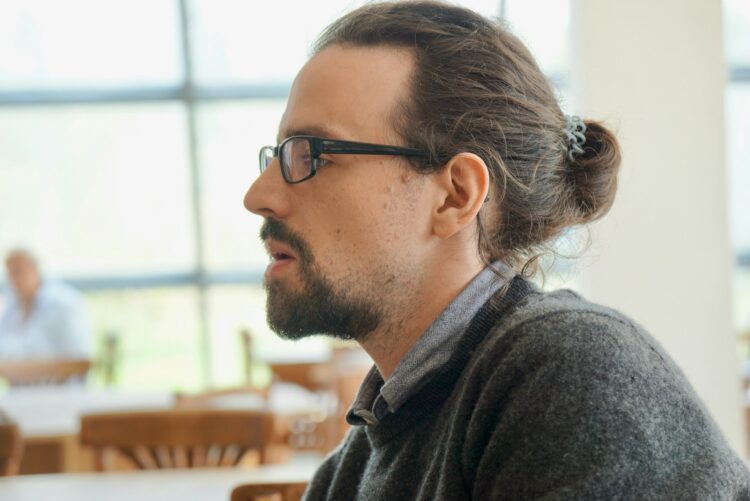
Atheism doesn’t always mean complete rejection of spirituality. For some, it’s a settled worldview. For others, it’s a starting point shaped by culture, disappointment, or unanswered questions. And sometimes, beneath the surface of skepticism, there’s a spark of curiosity. If you’ve wondered whether an atheist in your life is quietly exploring, here are 15 telling signs.
They Start Asking Deep Questions About Belief

It’s one thing for an atheist to argue against religion, but it’s another when their questions shift from dismissive to thoughtful. Instead of challenging you with sarcastic remarks, they ask things like, “What makes prayer meaningful to you?” or “How do you know God is listening?” These aren’t surface-level jabs; they’re signs of someone genuinely trying to understand the mechanics of faith. Curiosity often begins with a hunger for personal stories, not just theology.
They Notice the Role of Faith in Your Life

Atheists who aren’t curious usually ignore or minimize your faith. But when one begins to comment on how your beliefs shape your peace, kindness, or resilience, they’re paying attention in a deeper way. They may even admit, “I don’t believe, but I can see it makes you stronger.” Noticing the fruit of someone else’s faith often sparks reflection: Could this be real for me, too? That recognition is the seed of curiosity.
They Read Religious Books or Scriptures

Picking up a Bible, flipping through the Gospels, or reading a book on spirituality isn’t just an intellectual exercise. Even if they claim it’s “just research,” the act itself is a form of exploration. Curiosity often hides behind phrases like, “I just wanted to see what it actually says.” Whether they’re drawn to Psalms, parables, or apologetics, reading religious material shows they’re looking beyond stereotypes and willing to encounter faith on its own terms.
They Join Religious Conversations Without Mockery

A defensive atheist usually scoffs or dismisses when faith comes up. But when they lean in, ask clarifying questions, or listen with genuine respect, something is shifting. They may not agree, but the tone is softer, the curiosity more evident. Respectful engagement means they’re beginning to treat faith not just as an abstract argument but as something potentially valuable. It’s often the first time they move from debating religion to exploring it.
They Show Interest in Church or Religious Events

When an atheist accepts an invitation to a church service, a Christmas concert, or even a Bible study, it may seem casual. But their follow-up questions afterward — “Why do people sing those hymns?” or “Do you actually feel something during communion?” — reveal more than politeness. Attendance isn’t just about being social; it’s about testing the waters, seeing if there’s something compelling in the experience. Curiosity often comes disguised as “just tagging along.”
They Express Admiration for People of Faith

Curious atheists sometimes admit admiration in ways that surprise you: “I respect how consistent you are with your values” or “I wish I had that kind of peace in hard times.” While they don’t claim belief, they acknowledge qualities in Christians they quietly envy. That admiration suggests they’re starting to see faith not as weakness, but as strength. For many atheists, curiosity begins when they notice that faith offers something their own worldview doesn’t.
They Bring Up Morality and Meaning

Atheists who are exploring often find themselves caught in big-picture questions: “Why do we care about justice if nothing matters after death?” or “If morality is relative, what keeps it from collapsing?” These aren’t just mental puzzles — they reveal an internal search for grounding. When morality and meaning start coming up in conversation, it’s a sign they’re trying to bridge the gap between a material worldview and deeper existential needs.
They Admit Moments of Doubt in Their Own Belief System

For an atheist, admitting doubt is no small thing. Statements like, “Sometimes I wonder if there’s more out there,” or “I can’t explain why I feel drawn to certain ideas of God,” show cracks in absolute certainty. These confessions reveal vulnerability and openness, even if wrapped in humor. Doubt often feels risky to them, but it’s also the doorway to curiosity — the first step in realizing their worldview may not have all the answers.
They Enjoy Talking With Believers Who Aren’t Pushy

Curious atheists tend to gravitate toward Christians who listen well and don’t pressure them. If they keep returning to conversations with you, it’s because they feel safe exploring without being judged. The trust they place in you is significant: it means they’re genuinely interested, even if they cloak it in casual questions. The more safe space they have, the more their curiosity grows, because curiosity thrives in freedom, not force.
They Ask About Personal Experiences With God

Instead of keeping things abstract, they move into the personal: “Have you ever actually felt God answer a prayer?” or “What made you believe in the first place?” These questions show a desire to connect with lived reality, not just doctrines. For them, hearing stories of divine encounters humanizes faith. It shifts religion from a distant system of rules to something that can touch everyday life. That shift is often born of deep curiosity.
They Show Sensitivity During Times of Loss

When facing death, illness, or grief, curiosity often awakens. An atheist may wonder aloud if there’s an afterlife, or say things like, “I wish I believed in heaven right now.” In moments of vulnerability, the heart opens where the mind usually resists. Suffering exposes the human longing for hope beyond what’s visible. If an atheist becomes more receptive during loss, it often reveals a desire for the comfort that faith uniquely offers.
They Challenge Believers Differently

Not all challenges come from hostility. Sometimes, their questions shift from combative to contemplative. Instead of saying, “Religion is irrational,” they might ask, “How do you balance science with faith?” The tone is searching rather than dismissive. It’s not about trapping you in contradictions, but about genuinely wrestling with the tension. When their challenges feel more like curiosity than debate, it’s a strong sign they’re opening themselves up to new possibilities.
They Openly Compare Worldviews

A curious atheist may start weighing atheism against Christianity, sometimes out loud. They might say things like, “Atheism explains science, but Christianity seems to answer the ‘why.’” This comparison shows they’re not just analyzing one system in isolation — they’re looking at which one makes the most sense holistically. Curiosity takes root when they start treating faith not as irrelevant, but as a valid lens for understanding life, morality, and existence.
They Admit Admiration for Jesus’ Teachings

Even without belief in His divinity, they may say, “I think Jesus had a lot of wisdom about compassion and forgiveness.”That admiration is more than respect for history — it’s a soft entry point into exploring His message. Many atheists start with Jesus as a moral teacher before wrestling with His greater claims. Once admiration enters the picture, curiosity follows closely behind, because it’s hard to admire deeply without wanting to know more.
They Say They’re “Not 100% Sure” About Their Atheism

Small disclaimers like, “I don’t believe, but I’m open-minded,” or “I’d call myself agnostic more than atheist,” are subtle cracks in the armor. These statements reveal they’re leaving the door open, even if just a sliver. Absolute certainty has softened into possibility. That shift often marks the difference between someone who is entrenched in unbelief and someone quietly exploring. The words may be casual, but the curiosity behind them is very real.

